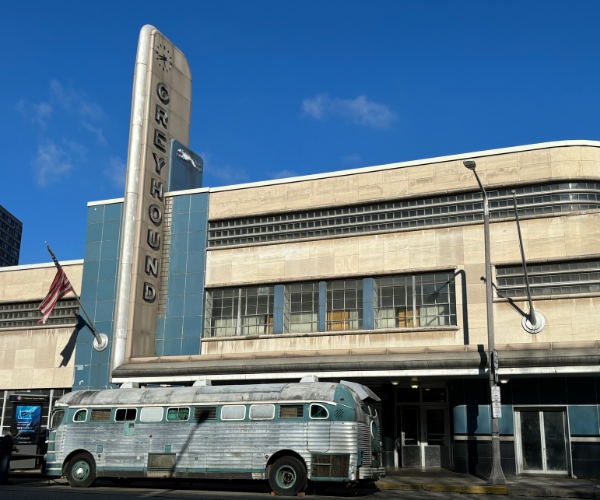When Clyde Simon first set eyes on the aging Scranton Road building destined to become the Liminis Theater, he knew there was work to do. “It was basically a flophouse when I bought it [in 2000],” laughs the 70-year-old Simon, who has lived in a backstage apartment on the property since.
Although he’s turned the space into a home for his successful experimental theater company Convergence-Continuum, the 8,000-square-foot property has taken a toll on Simon and his finances.
So now the Liminis needs $130,000 by the end of the year to pay off the mortgage and to keep the theater company alive. A $200,000 capital campaign (including a $70,000 reserve fund) has raised more than $87,000 as of early November, but the clock is ticking. Simon talks with us about the theater’s past, present and future.
Q: Will you move to another location if the building is sold?
A: If we can’t buy it, we’d be homeless and being a wandering theater company would cut back on what we do. This space is such a large part of our identity. It’s very intimate, seating 40 to 50 for each production. We don’t pretend that the audience isn’t there, and our patrons really enjoy that.
Q: If Convergence-Continuum is disbanded, will it end experimental theater in Cleveland?
A: Cleveland Public Theatre and Theater Ninjas are doing experimental stuff, but we have a pretty unique niche here. Live theater is not as big as it used to be. … It’s aging out. Doing alternative stuff is a way to get the next generation of theatergoers involved.
Q: Why is alternative theater important to the city’s cultural landscape?
A: All of the classics people watch now were once experimental and new. We’re fostering local playwrights by holding full runs of their plays. Next year, half of our productions will come from Cleveland playwrights.




